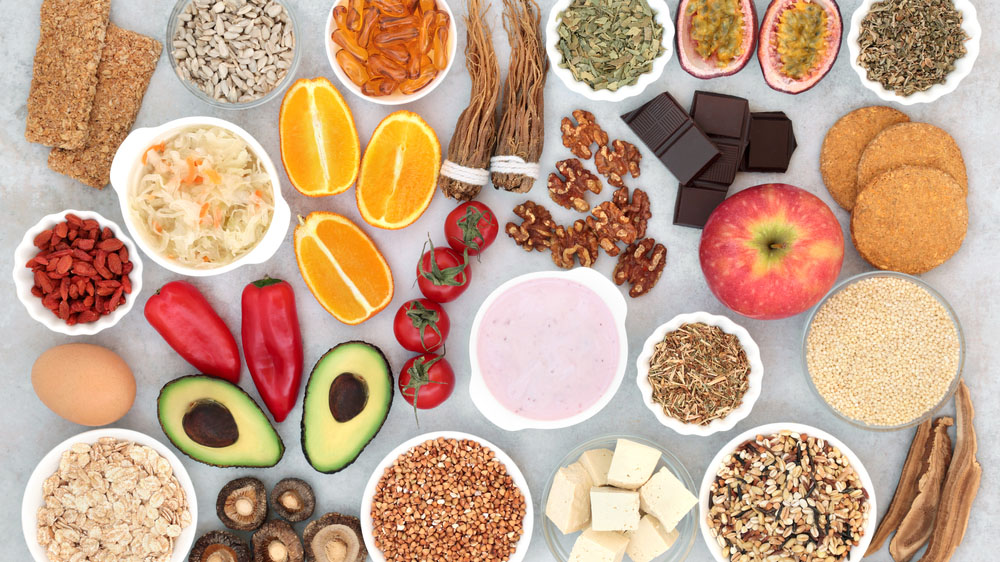Eating for Lasting Emotional Balance
Ah, emotions! Sometimes exhilarating, sometimes overwhelming, they shape our daily lives with an intensity that’s sometimes unpredictable. What we may not realize is just how much our diet plays a key role in this emotional dance. Sudden fatigue, irritability, unexplained euphoria or sadness… What if your plate held the key to a more stable emotional balance?
Good news: it’s possible to calm this inner whirlwind through tailored dietary routines to stabilize emotions. Eating mindfully and consistently can become a true ally in harmonizing our moods and preventing the blues. Let’s discover the secrets of a compassionate diet for our emotions.
1. Understanding the Link Between Diet and Emotions
When Brain Chemistry Hides in Your Plate
Our emotions are governed by a complex ballet of neurotransmitters—dopamine, serotonin, norepinephrine—that directly influence our mood. These chemicals, far from being produced randomly, depend largely on our diet.
For example, serotonin, often called the “happiness hormone,” is synthesized from tryptophan, an essential amino acid found in certain foods. A lack of tryptophan can lead to significant emotional fluctuations.
Similarly, an unbalanced diet can disrupt blood sugar levels, causing fatigue, nervousness, and even anxiety. This is why adopting proper dietary routines is important for stabilizing these mechanisms.
2. Pillars of an Emotionally Balancing Diet
a) Prioritize Foods Rich in Tryptophan
To naturally boost serotonin and promote a more stable mood, focus on these foods:
- Legumes: lentils, chickpeas, black beans
- Nuts and seeds: cashews, almonds, pumpkin seeds
- Eggs and fish: rich in tryptophan and omega-3s
- Dark chocolate (minimum 70%): a treat that also boosts dopamine, promoting motivation and pleasure
b) Adopt a Low Glycemic Index Diet
Sugar spikes are emotional saboteurs. A meal rich in quick sugars (pastries, sodas, white bread) gives an energy boost followed by a sharp drop in blood glucose levels… and with it, a dip in mood.
Therefore, favor:
- Whole grains (quinoa, oats, brown rice)
- Legumes (which, in addition to being rich in tryptophan, stabilize blood sugar)
- Green vegetables that provide fiber and magnesium, perfect for fighting stress
c) Don’t Neglect Omega-3s
These essential fatty acids play a major role in the fluidity of neuronal membranes and, therefore, in the transmission of emotional signals. Omega-3 deficiencies are often linked to mood disorders.
You can find them in:
- Fatty fish (salmon, sardines, mackerel)
- Flax and chia seeds
- Vegetable oils (canola, walnut, flax)
d) Pamper Your Gut Microbiota
We often hear the gut referred to as our “second brain,” and for good reason: it contains billions of bacteria that directly influence our mental well-being. An imbalanced microbiota can exacerbate stress, anxiety, and even depression.
For a happy microbiota:
- Consume fermented foods (kefir, yogurt, sauerkraut, miso)
- Integrate prebiotic fibers (asparagus, onions, bananas, leeks)
- Limit excessive sugar and ultra-processed foods, which weaken bacterial balance
3. The Importance of Regularity and Good Habits
a) Eat at Fixed Times
Our bodies love regularity! They function like biological clocks that thrive on structure. Skipping meals or eating chaotically disrupts blood sugar and neurotransmitter function, increasing stress and irritability.
Try to:
- Have three balanced meals a day
- Include a healthy snack when hunger strikes (dried fruits, plain yogurt, a handful of almonds)
- Avoid late meals that harm sleep quality and, consequently, emotional balance
b) Stay Hydrated
We often forget, but dehydration can amplify stress and fatigue. A mere 2% drop in hydration levels can alter mood and concentration.
Adopt the habit:
- Drink 1.5 to 2 liters of water a day, apart from meals
- Enjoy calming herbal teas (chamomile, verbena, lemon balm)
- Limit coffee and alcohol, as they dehydrate and affect emotions
c) Listen to Your Body and Cultivate Mindful Eating
Too often, we eat on the go, in front of a screen, without paying attention to our body’s signals. This habit can encourage emotional eating and an imbalanced relationship with food.
To cultivate more intuitive eating:
- Eat mindfully: take time to savor each bite
- Learn to recognize emotional hunger (snacking out of boredom or stress) and respond differently (breathing, walking, reading)
- Promote conviviality: eating in a relaxed atmosphere improves digestion and nutrient absorption
Conclusion: A Diet That Supports Emotional Balance
Dietary Routines to Stabilize Emotions, isn’t rocket science. All it takes is adopting simple and compassionate routines: prioritize the right nutrients, avoid sugar excesses, pamper your microbiota, stick to fixed meal times, and listen to your body.
Eating isn’t just about filling your stomach—it’s about nourishing your emotional well-being. By taking care of your plate, you’re taking care of your mind. So, are you ready to transform your habits for lasting serenity?
Sources :
- Harvard Health – “Nutrition and Mental Health” Lien
- PubMed – “The gut-brain connection” Lien
- American Psychological Association – “Food and Mood” Lien
- Mayo Clinic – “Healthy diet for emotional balance” Lien
- The Lancet Psychiatry – “Nutrition and mental health” Lien


